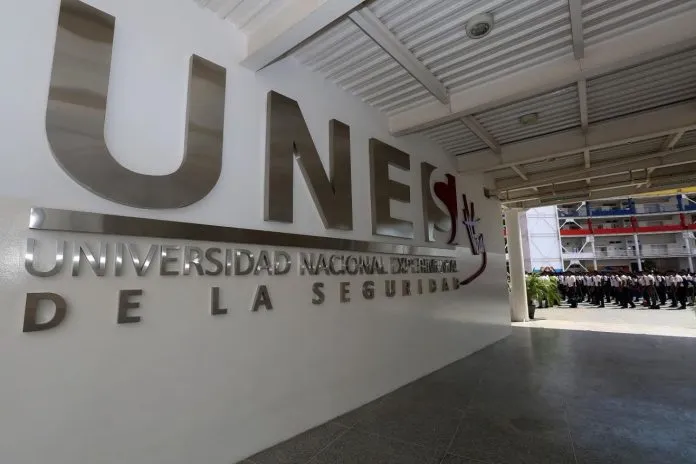Introduction
In recent weeks, a troubling situation has emerged from the Universidad Nacional de la Seguridad (UNES) located in Catia, Venezuela. On July 28, a group of students went missing after staging a protest during the presidential election, alleging that they were coerced into accepting assisted voting to support incumbent President Nicolás Maduro. The disappearance of these students has sparked widespread concern and condemnation from human rights organizations, family members, and the broader community. This article delves deeply into the circumstances surrounding the students’ disappearance, the context of their protest, and the broader implications for Venezuelan society and governance.
Background of the Disappearance
The Students’ Protest
The UNES Catia, a prestigious institution known for its focus on security and law enforcement, became the epicenter of a significant protest on election day. The students, who were reportedly acting out of a desire to preserve their electoral rights, accused the institution’s administration of pressuring them into accepting assisted voting. The group specifically objected to the perceived manipulation of their votes in favor of Nicolás Maduro, who was seeking re-election.
Key Figures and Allegations
The missing students have been identified by various sources, including the non-governmental organization Provea, as Derwin Linares, Eudimar Labrador, Maick Delfin, and Antonio Gutiérrez. These individuals were reportedly vocal about their opposition to the enforced voting measures. The protest was not only a challenge to the integrity of the electoral process but also a stand against what they perceived as an infringement on their democratic rights.
The Protest’s Escalation
The protest took place within the premises of the UNES Catia, where the students clashed with police officers who were present at the voting center. The confrontation was captured on video and shared widely on social media, providing a visual account of the students’ resistance against the alleged pressure to conform to assisted voting procedures.
Reactions and Developments
Family and Community Response
Family members of the missing students have been vocal about their concerns, reporting the disappearance to various human rights organizations and calling for urgent action. The families’ distress is compounded by the fear of potential state-sanctioned retaliation and the lack of clarity regarding the students’ whereabouts.
Human Rights Organizations’ Involvement
Human rights groups, including Provea, have raised alarms about the potential for forced disappearances—a grave human rights violation. Provea has characterized the disappearance of the students as a form of state-sponsored intimidation designed to suppress dissent and instill fear among critics of the government.
Definition and Context of Forced Disappearances
Forced disappearance involves the arrest, detention, or abduction of individuals by state agents, followed by the refusal to acknowledge their fate or whereabouts. This practice aims to terrorize victims and their families and is recognized as a serious violation of human rights and international law. Provea has highlighted that such actions are considered crimes against humanity, emphasizing the international community’s ongoing scrutiny of Venezuela’s human rights record.
Political and Electoral Context
The protest at UNES Catia occurred in the broader context of a highly contentious election. The presidential election in Venezuela has been marked by allegations of irregularities and concerns about the fairness of the electoral process. The students’ protest reflects broader anxieties about electoral integrity and democratic freedoms in Venezuela.
The Role of the CNE and Electoral Processes
Allegations Against the National Electoral Council
According to reports, coordinators from the National Electoral Council (CNE) were also implicated in pressuring voters to accept assisted voting. This practice was reportedly enforced under the direction of the center’s administrator, General José Rigoberto Betancourt Moya. Such actions have been criticized as attempts to undermine the secrecy of the vote and manipulate election outcomes.
Threats and Coercion
Some students have alleged that they were threatened with academic repercussions, including the withholding of their diplomas, if they refused to comply with the assisted voting arrangement. These threats highlight the coercive tactics reportedly used to ensure compliance and suppress dissent.
Broader Implications and Concerns
Impact on Venezuelan Society
The disappearance of the UNES Catia students has broader implications for Venezuelan society. It reflects ongoing concerns about the state of democracy, human rights, and civil liberties in the country. The situation underscores the tensions between government authorities and those advocating for democratic reforms and human rights protections.
International Reactions
The international community has been closely monitoring the situation. Human rights organizations, foreign governments, and international observers have expressed concern about the allegations of forced disappearances and the overall state of human rights in Venezuela. The case of the missing students has drawn attention to the need for transparency, accountability, and respect for democratic processes.
The Role of Social Media
Social media has played a crucial role in documenting and disseminating information about the protest and the subsequent disappearance of the students. The videos and posts shared online have helped bring international attention to the issue and amplify the voices of those advocating for justice and human rights.
Familiares denuncian desaparición de 25 estudiantes de la Universidad Nacional de la Seguridad desde la tarde del domingo 28-7
Los desaparecidos protestaron en la sede de la UNES Catia, Caracas, denunciando al director de la institución por obligarlos a votar por Nicolás Maduro… pic.twitter.com/AcKIrOiYms
— PROVEA (@_Provea) July 30, 2024
Conclusion
The disappearance of 25 students from the UNES Catia amidst allegations of electoral coercion is a significant and troubling development in Venezuela. The incident highlights deep-seated issues related to electoral integrity, human rights, and government accountability. As the situation continues to unfold, the international community, human rights organizations, and Venezuelan society at large will be watching closely, hoping for a resolution that upholds democratic principles and protects the rights of all individuals.
Explore more about LATIN AMERICA topics at: LATIN AMERICA


